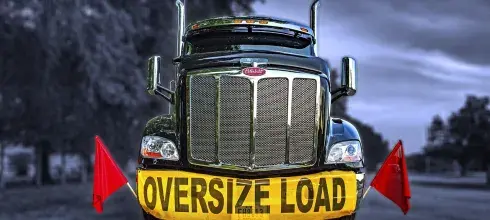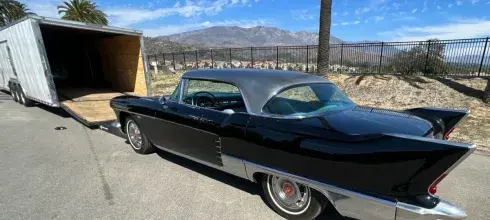Factors to Consider When Choosing the Best Place to Sell Your Car
When deciding where to sell your car, a few key factors can impact the success of your sale:
- Timeframe: If you need to sell quickly, some platforms and methods may be better suited than others.
- Car Condition: Some sales options work better for well-maintained vehicles, while others cater to junk or non-working cars.
- Market Demand: Research where similar cars are selling the fastest or for the best price, as location can influence demand.
- Fees and Costs: Consider listing fees, selling commissions, or transport costs if selling out of state.
- Convenience: Balance between the effort required and the potential return - some platforms are easier but may yield lower offers. Private Sales vs. Dealer Sales: Advantages and Disadvantages of Both
Private sales and dealer sales each come with pros and cons. Selling privately generally offers a higher payout, but it involves more effort in terms of listing, marketing, and vetting buyers. On the other hand, selling to a dealer is quick and hassle-free but may result in a lower offer as dealers need to resell the vehicle for profit.
Private Sales
Pros:
- Higher price.
Direct negotiation with buyers.
Cons:
- Time-consuming.
May require repairs to attract buyers.
Dealer Sales
Pros:
- Fast.
- Convenient.
Trade-in options available.
Cons:
Typically lower offer due to dealer markup.
Best Pace for a Successful Private Sale
The best platforms for private sales vary based on location and car type. Online marketplaces like Craigslist, Facebook Marketplace, and Autotrader are popular for general sales, while specialty forums may be better for niche vehicles. Local classifieds and car enthusiast clubs can also yield good results.

Pros:
- Potential for higher prices than dealer sales.
Direct interaction with buyers, leading to more control over the process.
Cons:
- Requires time and effort to list, negotiate, and meet with potential buyers.
Greater risk of scams or fraudulent buyers.
Best Place for Different Types of Cars
Selling Commercial Vehicles
Commercial trucks or vans are best sold through sites like Commercial TruckTrader or local business networks. Specialized dealerships may also offer trade-in opportunities.
Pros:
- Access to a targeted audience specifically seeking commercial vehicles.
Potential for higher prices due to niche market demand.
Cons:
- May take longer to find the right buyer.
Limited market reach compared to standard vehicles.
Selling Classic Cars
For classic cars, Hemmings, ClassicCars.com, or auctions like Barrett-Jackson can attract buyers willing to pay premium prices for rare and vintage models.
Pros:
- Attracts passionate buyers ready to pay premium prices.
Best platforms for niche, high-value vehicles.
Cons:
- Fees and commissions on auction sales may reduce profit.
Specialized market can mean longer wait times to find the right buyer.
Selling Sports Cars
Sports cars often do well on sites like Bring a Trailer, eBay Motors, or even local performance car clubs, where buyers are specifically looking for performance vehicles.
Pros:
- Access to performance enthusiasts who value the vehicle type.
Greater potential for competitive pricing.
Cons:
- High competition, especially for popular models.
Buyers may want detailed records or performance history.
Selling Heavyweight/Trucks
Heavy-duty trucks or pickups might find better buyers on niche platforms like TruckPaper or heavy equipment auctions.
Pros:
- Best platforms for targeting buyers seeking specific utility vehicles.
Potential for higher sales in targeted markets.
Cons:
- May take time to find buyers willing to pay a competitive price.
Niche audience limits the market size.
Selling Off-Road Cars
Off-road and all-terrain vehicles typically do well on enthusiast forums, specialized dealers, or through platforms like Off-Road Classifieds.
Pros:
- Enthusiast-driven market, with buyers seeking specific vehicle types.
Ability to showcase vehicle capabilities through dedicated platforms.
Cons:
- May require additional promotion or demonstrations to attract buyers.
Limited buyer pool compared to standard vehicles.
Best Places to Sell Your Car in Different States With Pros & Cons
Selling in California
Online: Carvana, Craigslist, AutoTrader
Pros:
Large, tech-savvy market with many buyers willing to pay competitive prices, especially in urban areas like Los Angeles and San Francisco.
Cons:
High competition among sellers and potential challenges with scams on platforms like Craigslist.
Offline: Local Dealerships, CarMax
Pros:
Dealerships offer quick trade-ins, and CarMax provides easy, no-haggle offers. The convenience is ideal if you need to sell quickly.
Cons:
Trade-in offers are often lower than what you could get in a private sale.
Selling in Texas
Online: Facebook Marketplace, eBay Motors, Vroom
Pros:
Facebook Marketplace and Vroom allow broad exposure, while eBay Motors is excellent for niche markets and classic cars in cities like Dallas and Austin.
Cons:
Listing on multiple platforms requires time and effort, and shipping cars across Texas or to other states can be costly.
Offline: Local Auctions, CarMax
Pros:
Texas has a strong auction market, especially for trucks and commercial vehicles. CarMax locations are common and offer a straightforward selling process.
Cons:
Auction prices may fluctuate, and CarMax offers can be below market value.
Selling in Florida
Online: CarGurus, OfferUp, TrueCar
Pros:
CarGurus is ideal for getting competitive prices, while OfferUp connects with local buyers. TrueCar helps compare market prices to attract more offers in cities like Miami or Orlando.
Cons:
OfferUp may require additional effort to filter out unserious buyers, and CarGurus' fees can add up.
Offline: Dealership Trade-ins, Local Classified Ads
Pros:
Florida's strong tourism market makes dealerships a quick way to trade in vehicles. Local ads in newspapers or bulletin boards can also attract private buyers.
Cons:
Dealerships may offer low trade-in values, and offline ads require more legwork to reach potential buyers.
Best Options for Profitable Dealer Sales
For a quick, hassle-free dealer sale, try platforms like Kelley Blue Book Instant Cash Offer or trade-in services at major dealerships like CarMax, AutoNation, and Vroom. These platforms provide instant offers but tend to pay less than private sales.

Pros:
- Fast and convenient process.
Instant offers available.
Cons:
- Lower payouts compared to private sales.
Limited room for price negotiation.
Best Place to Sell a Car Online for Free
Some of the best free sites to sell your car online include:
- Facebook Marketplace: No fees, wide local reach.
- Craigslist: Minimal listing fees in some areas, broad audience.
CarGurus: Popular for private sales, although it offers optional paid promotions.
Pros:
- No listing fees on most platforms.
Broad audience, especially on Facebook Marketplace and Craigslist.
Cons:
- Potential for scams and unserious buyers.
Requires more effort to manage the sale and listings.
Best Place to Sell a Used Car with High Mileage
High-mileage vehicles are often best sold privately through sites like Craigslist or Facebook Marketplace. Dealers are less likely to offer competitive prices for older, high-mileage cars.
Pros:
- Private buyers may offer higher prices than dealers.
Online platforms provide greater visibility.
Cons:
- High-mileage cars may attract fewer buyers.
Dealers typically offer low prices for such vehicles.
Best Place to Sell My Junk Car
For non-working vehicles, options include scrap yards, junk car buyers, or platforms like Peddle and CashForCars. These platforms offer free quotes and towing, making the process hassle-free.
Pros:
- Easy process with free towing and instant quotes.
Ideal for cars with no resale value or in non-working condition.
Cons:
- Lower payouts compared to selling for parts.
Limited opportunity to negotiate higher prices.
Selling a Car for Scrap - Is it Worth It?
Selling for scrap can be worthwhile if your car has no resale value or extensive damage. Scrap buyers pay based on the weight of the car’s metal and recyclable parts.
Pros:
- Quick and easy sale option for cars with no other market value.
Scrap yards often provide towing services.
Cons:
- Low profit compared to other sales methods.
Price based solely on weight, not on individual parts.
Where and How to Sell Your Car Quickly?
For a fast sale, platforms like Carvana, CarMax, and Vroom provide instant offers with minimal hassle, allowing you to sell your car within days.
Pros:
- Instant offers with minimal hassle.
Fast transactions, often within days.
Cons:
- Typically lower offers compared to private sales.
- Limited room for negotiation on price.





